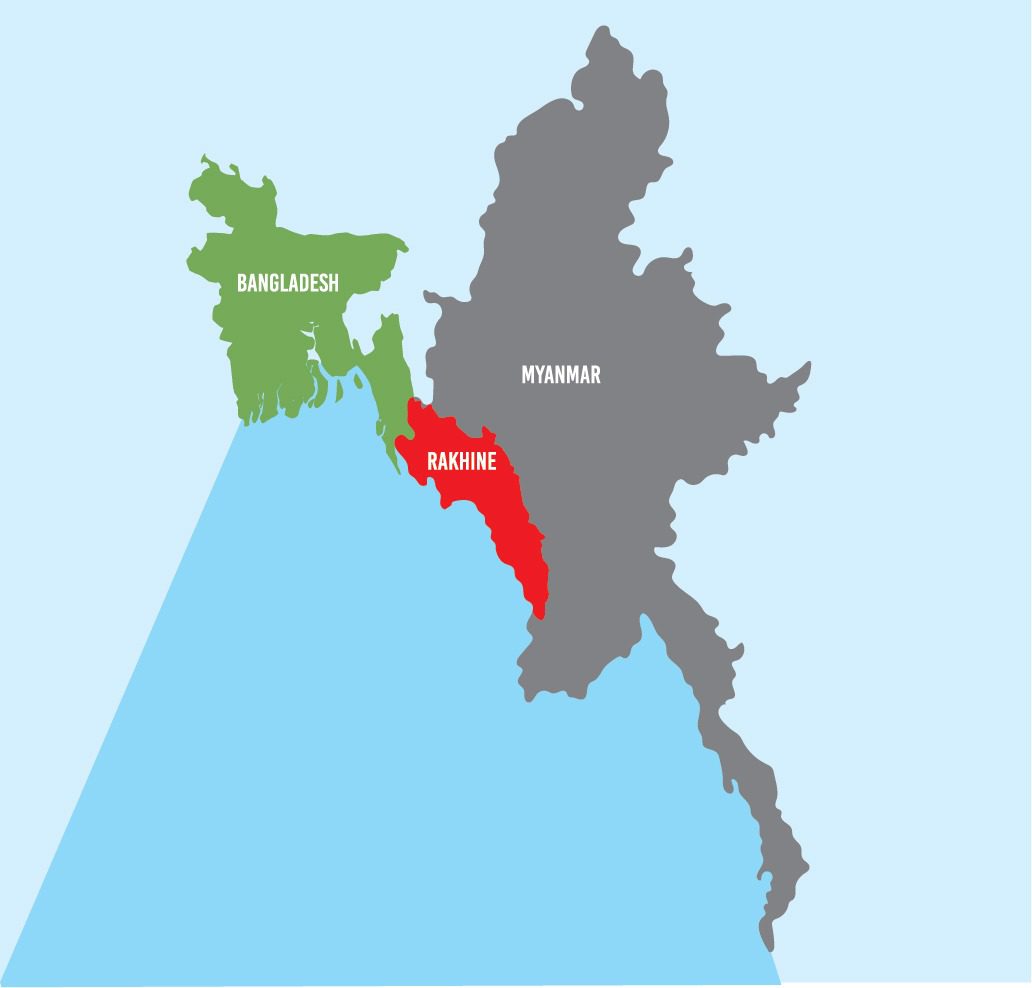As the long-simmering conflict in Myanmar’s Rakhine State threatens to escalate into a new dimension, Bangladesh finds itself uncomfortably close to a geopolitical fault line. While the US reportedly eyes the region for strategic recalibration—proposing ethnically autonomous statelets in Arakan under the guise of humanitarian intervention—Bangladesh must ask a crucial question: why should it play a role in someone else’s backyard?
The answer lies not only in geography but in geopolitics.
Recent analyses by US policy strategists, including Michael Martin, point to the formation of three self-proclaimed “governments” in Myanmar’s border states—Arakan, Kachin, and Karenni. These small states are being quietly supported by the West, partly to weaken the military government and possibly divide the country into easier-to-control areas.
Martin argues that US compliance with State Administration Council (SAC) sanctions has diminished its standing among local resistance movements. In response, he recommends providing technical support for building local governance—a move that doubles as humanitarian aid and strategic leverage.
This is not a conflict that Bangladesh initiated—nor one it should inherit.
Dhaka’s long-standing position has been one of cautious neutrality, a stance that now requires firmer articulation. Retired Major General Masud Razzaq, a security analyst, warns against any involvement of Bangladeshi armed forces in what is, in essence, a proxy war.
“Bangladesh must maintain diplomatic equilibrium,” he notes, “and prioritise regional stability over strategic adventurism,” he said.
Indeed, Rakhine is not just a distant theatre. It is a borderland tethered to Bangladesh by history, refugees, and unresolved trauma. More than 1 million Rohingya Muslims have already sought shelter in Bangladesh—a burden of compassion that has morphed into a diplomatic and demographic crisis.
Any reshaping of geographical drawing of the region would ring bells among the power houses.
The region is central to China’s Belt and Road Initiative, particularly through the Kyaukphyu deep-sea port and oil-gas pipelines linking the Bay of Bengal to Yunnan.
A senior professor at China’s National Defense University, speaking anonymously, confirmed Beijing views any Western-sponsored state formation here as a direct threat to maritime lifeline of the region.
New Delhi, too, has cause for concern.
A religion-based autonomous state on its eastern flank could destabilise its own ethnically sensitive northeast. Indian security experts worry such precedents may embolden secessionist sentiments in regions like Nagaland, Manipur, and Mizoram.
To involve Bangladesh in such a regional dilemma would invite chaos across Cox’s Bazar and Chittagong Hill Tract border and risk turning humanitarian stewardship into military entanglement. There is little room for moral posturing in a proxy conflict cloaked in the language of autonomy and human rights.
Bangladesh’s foreign policy, then, must not be one of passive neutrality but active equilibrium—engaging China, India, and the United States with measured resolve. It must craft a doctrine of strategic non-alignment that does not shy away from asserting national interest.
Because for Bangladesh, Rakhine is no longer just a regional crisis—it is a test of diplomatic foresight, restraint, and the ability to resist becoming someone else’s battlefield.


